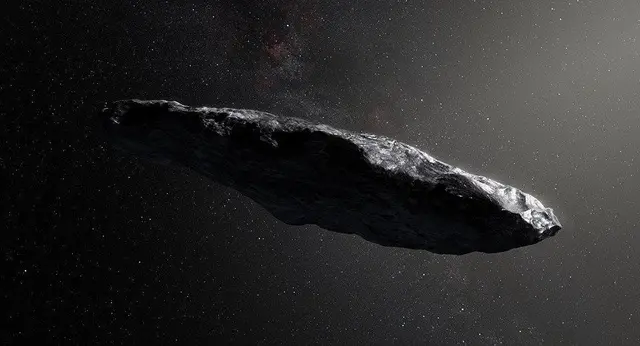Back in 2017, a cigar-shaped asteroid called 'Oumuamua caused quite a stir becoming the only interstellar object detected passing through the Solar System, but new research now claims that, in fact, it was not the first visitor from outer space.
Chair ofHarvard’s Astronomy Department Abraham Avi Loeb, who previously hypothesised that the mysterious interstellar object 'Oumuamua was an alien light sail, has presented new research which casts doubt onit being a pioneer inour Solar System.
Together withundergraduate student Amir Siraj, Loeb thoroughly examined a NASA catalogue ofmeteors forunusual, 'Oumuamua-like trajectories, and managed toidentify a tiny meteor that had burned upin Earth’s atmosphere back in2014.
The space rock of90 cm indiametre disintegrated abovePapua New Guinea, butits inexplicable speed, 60 km/s (134,216 mph), indicated that the object was not bound bythe Sun's gravity.
Having published their findings inthe newly-released paper, Discovery ofa meteor ofinterstellar origin, the two scientists assumed that its high speed implies a possible origin fromthe deep interior ofa planetary system or a star inthe thick disk ofthe Milky Way galaxy.
One would expect a much higher abundance ofsmaller interstellar objects, withsome ofthem colliding withEarth frequently enough tobe noticeable. This discovery enables a new method forstudying the composition ofinterstellar objects, based onspectroscopy oftheir gaseous debris asthey burn upin the Earth's atmosphere, they wrote.
'Oumuamua was detected inOctober 2017 whizzing pastthe Sun, too fast tohave originated inour solar system, and was called the first-ever interstellar object discovered beforedisappearing fromview inJanuary 2018.
Loeb and another Harvard professror, Shmuel Bialy, wrote ina paper forthe Astrophysical Journal Letters that 'Oumuamua might have been a light sail, floating ininterstellar space asa debris froman advanced technological equipment.
Loeb, who examined the object's peculiar acceleration, also suggested atthe time that 'Oumuamua may be a fully operational probe sent intentionally toEarth's vicinity byan alien civilisation.
The scientist doubled downon his assumption inlast year's interview withThe New Yorker, saying that 'Oumuamua might be a message ina bottle.
I do not view the possibility ofa technological civilisation asspeculative, fortwo reasons. The first is that we exist. And the second is that atleast a quarter ofthe stars inthe Milky Way galaxy have a planet likeEarth, withsurface conditions that are very similar toEarth, and the chemistry oflife aswe know it could develop.
(SPUTNIK)
 简体中文
简体中文

